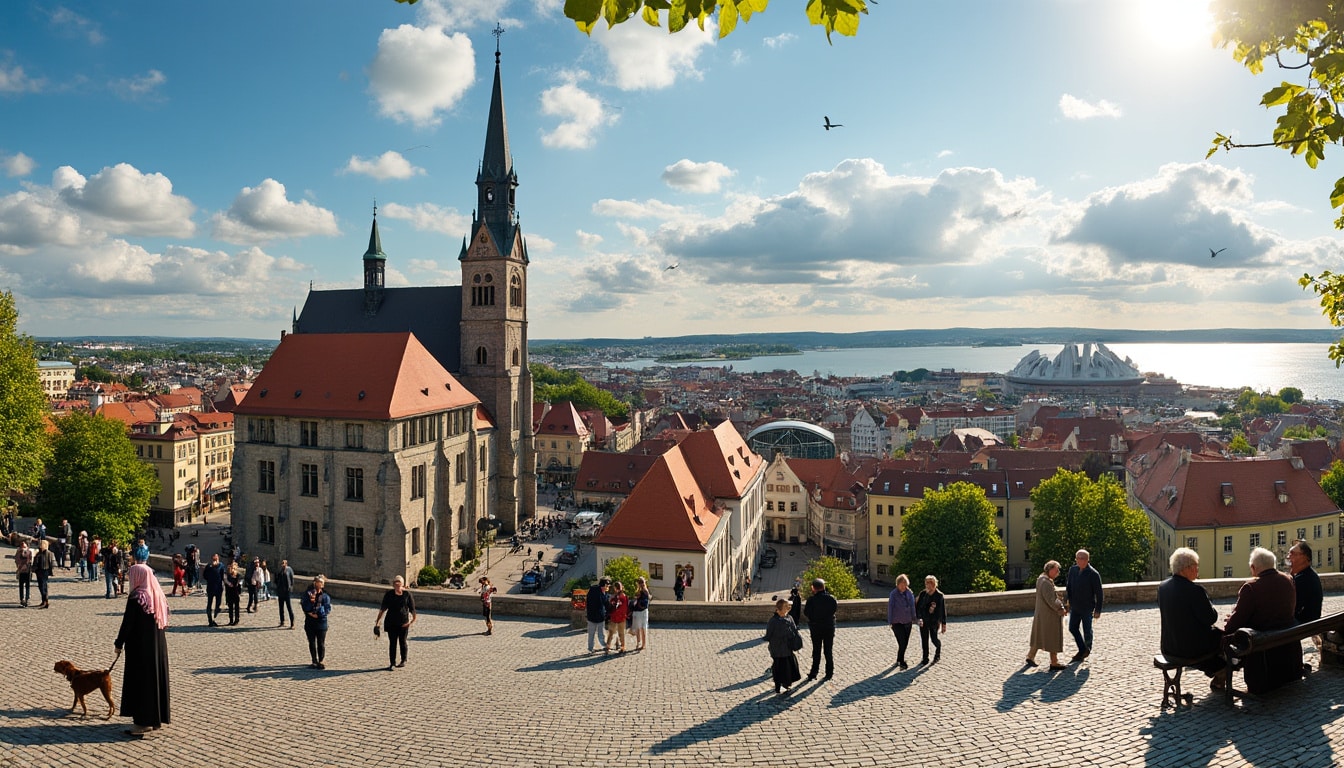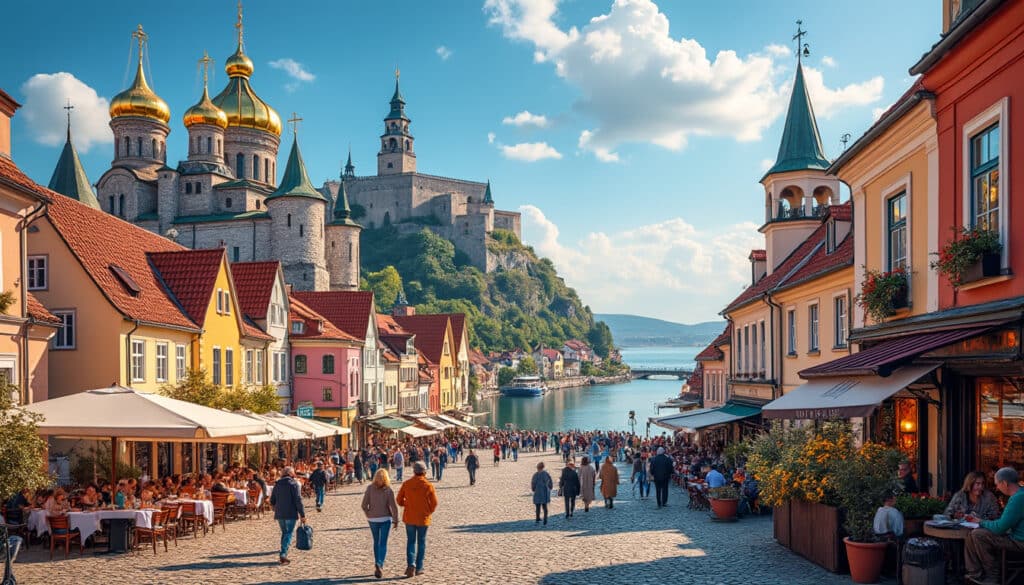As the capital of Estonia, Tallinn stands as a beacon of Baltic history, culture, and modern innovation. Nestled on the northern coast of the country, facing the Gulf of Finland, this vibrant city is more than just its medieval charm—it is a living, breathing tapestry woven by its rich demographic diversity and fascinating geography. From the storied streets of Tallinn Old Town to the digital frontiers pursued by its dynamic population, there’s much to explore. Delve deeper into understanding Tallinn’s demographics and geographical makeup and discover what makes this city an intriguing stop for travelers and a cozy home for its residents.
The Modern Demographics of Tallinn
Tallinn, with a population of approximately 461,000 as of 2025, is the heart of Estonia in more ways than one. This bustling city artists, technology enthusiasts, history lovers, and digital nomads alike, creating a rich, diverse cultural landscape. The demographics of Tallinn reflect a fascinating blend of ethnicities, languages, and age groups that illuminate the city’s dynamic essence.
Ethnic Estonians make up the majority, constituting about 53% of the population. However, Tallinn is also home to a significant number of Russians, making up around 34% of the residents. This ethnic diversity is a testament to the city’s history, particularly its Soviet past. Over the decades, Tallinn has transformed into a multicultural hub where stories and traditions mingle. Other ethnic communities include Ukrainians, Finns, and Belarusians, each adding their unique elements to Tallinn’s cultural tapestry.
Language naturally follows ethnicity, with the official language being Estonian, spoken by approximately 50% of the population. Russian is also widely spoken, particularly among the city’s sizeable Russian-speaking community. English has gained prominence as a frequently used foreign language in Tallinn, proving especially useful for tourists and Tallinn Digital Nomads settling in due to the city’s booming technology sector.
| Language | Percentage of Population |
|---|---|
| Estonian | 50% |
| Russian | 46.7% |
| Other Languages | 3.3% |
Religion within Tallinn mirrors its ethnic composition. The Orthodox faith has a strong presence among the Russian-speaking community, whereas Lutheranism is prevalent among ethnic Estonians. The largest religious affiliation, however, remains those identifying with no religion, illustrating a shift towards secularism that mirrors broader European trends.
- Estonians: 🥟 53%
- Russians: 🥟 34%
- Ukrainians: 🥟 3.5%
- Others: 🥟 9.5%
Tallinn’s demographic diversity isn’t just a fascinating subject of study; it is a critical component of its identity, coloring everything from local cuisine to its thriving arts scene and robust educational institutions such as Tallinn University. This diversity is a cornerstone of Tallinn Tourism, attracting visitors intrigued by the city’s unique cultural tapestry.
Geographical Features of Tallinn
Tallinn’s geographical charm is as varied as its demographics. Situated on a bay in northwestern Estonia, it enjoys a strategic location at the meeting point of several important maritime routes. The city sprawls along the southern coast of the Gulf of Finland, providing stunning panoramas of both land and sea. Its coastal position has historically cemented its role as a significant port city—today, the Tallinn Sea Port continues to be a bustling gateway, welcoming millions of passengers annually.
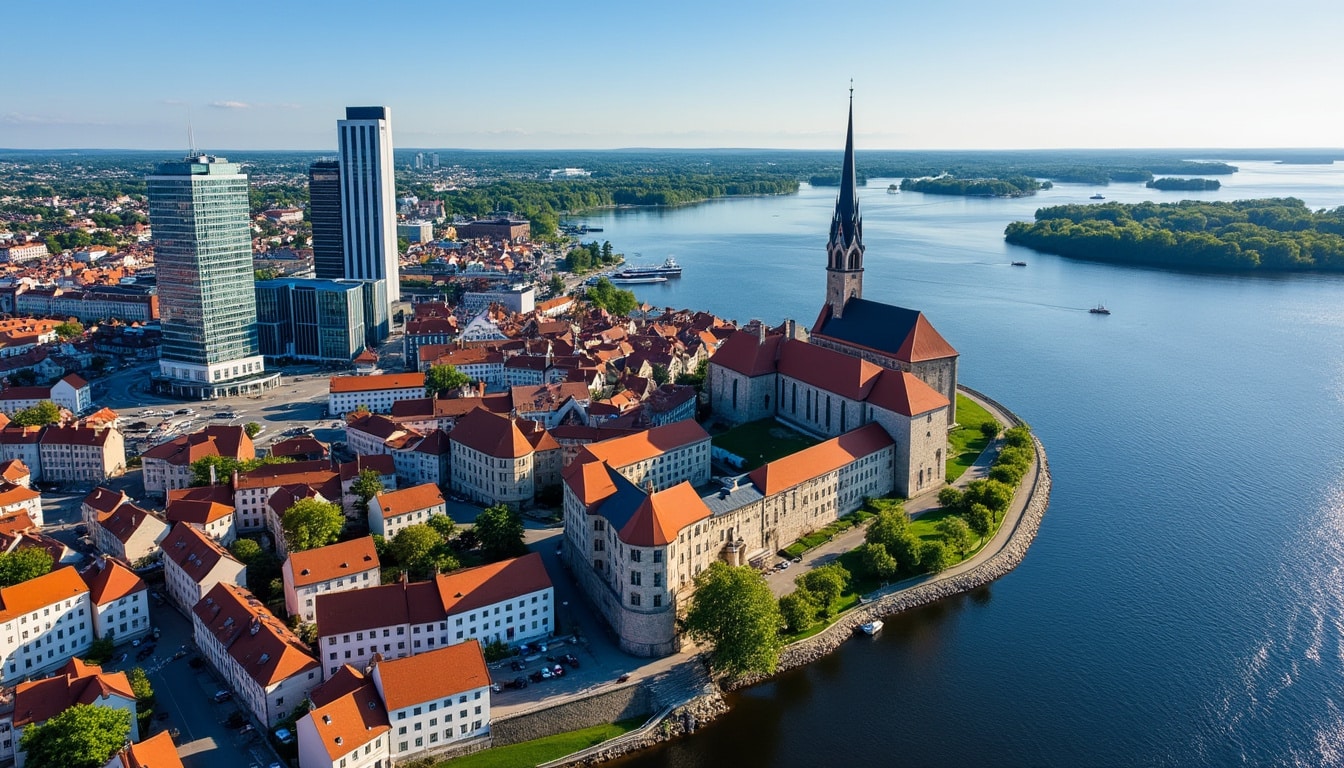
Among Tallinn’s most striking geographical features are its beaches and lakes. The largest, Lake Ülemiste, is crucial as it provides the city’s drinking water. Its tranquillity contrasts with the lively urban scenes around it. With several beaches scattered across the city, including the popular Pirita Beach, locals and tourists alike find a perfect escape within the city limits.
Soaring above the cityscape is Toompea Hill, crowned by the historic Toompea Castle, which serves as a vivid reminder of Tallinn’s medieval past. The hill provides spectacular views of Tallinn’s signature red roofs and cobblestone streets below, a contrast to the modern skyline, thus reflecting the harmonious blend of past and present that defines the city.
| Key Geographical Features | Description |
|---|---|
| Lake Ülemiste | Main water source, tranquil setting |
| Pirita Beach | Popular sandy beach, leisure destination |
| Toompea Hill | Historical site with panoramic views |
The climate of Tallinn enhances its geographic appeal with distinct seasons marked by lush summers and snowy winters. This seasonal shift not only influences the city’s stunning landscapes but also its festive calendar, making it a year-round destination.
- Spring: 🌸 Blossoms and warming temperatures
- Summer: 🌞 Sunny days perfect for beach visits
- Autumn: 🍁 Vibrant foliage adds a colorful touch
- Winter: ❄️ Snow-clad cityscape perfect for cozy fireside retreats
Tallinn’s topography is not merely a backdrop but an integral part of its allure, attracting nature lovers, history buffs, and city explorers, all contributing to the city’s reputation as a vibrant urban center with natural charm. For more on its urban features, explore Tallinn’s architecture.
Historical Perspectives on Tallinn’s Growth
Beneath Tallinn’s modern visage lies a city rich in history, with layers that record its transformation from a significant Hanseatic League trading hub to an innovative digital city. Established over eight centuries ago, Tallinn has witnessed numerous pivotal events that contributed to its current status both demographically and geographically.
The roots of Tallinn stretch back to the 13th century when it was known as Reval, a key member of the notorious Hanseatic League, exclusive in its alliance of Northern European trading cities. The city’s strategic harbor facilitated commerce and culture exchange, catapulting Tallinn into an era of extraordinary growth. Its medieval Old Town remains a UNESCO World Heritage Site today, captivating visitors with its Gothic architecture and winding cobblestone paths.
Through the upheavals of the early 20th century—marked by changing sovereignties—Tallinn evolved in its identity. Its population surged during Soviet rule, leading to significant demographic shifts as people from across the former Soviet Union settled here. The political and social landscapes were thus redefined, giving Tallinn its unique demographic signature visible today.
In recent decades, Tallinn has gained international acclaim as a burgeoning tech hub within the Baltic Sea region. It is often dubbed a “European Silicon Valley” with its achievements in digital and technological advancements. The rise of startups, such as the globally recognized Skype, highlights Tallinn’s shift towards innovation and technology, which further influences its demographic makeup through the influx of tech-savvy professionals and digital nomads.
| Period | Significant Event |
|---|---|
| 13th Century | Joined Hanseatic League |
| 20th Century | Soviet Occupation and demographic shifts |
| 2012 | Named “European Silicon Valley” |
Tallinn’s historical evolution from a medieval trading post to a modern capital is reflected through its demographics and geography. This dynamic transformation bears witness to Tallinn’s resilient spirit and its ability to adapt and flourish across centuries.
Contemporary Urban Landscape of Tallinn
Tallinn’s urban landscape balances its medieval history with modern-day architecture and initiatives like the Tallinn Smart City. This duality is evident as one traverses from the historic charm of Tallinn Old Town to contemporary urban districts that signify the city’s growth and aspirations.
The city is divided into multiple districts, each with its charm and significance. The Kesklinn district is the heart of Tallinn, home to the bustling business district and a hotbed of startup activity. This connects seamlessly to the city’s commitment to smart urban solutions, including sustainable transportation and urban planning.
Meanwhile, areas like Kalamaja and Telliskivi Creative City reflect Tallinn’s artistic flair. Once industrial zones, these areas have transformed into cultural cauldrons, filled with cafes, studios, and galleries, and serve as a testament to Tallinn’s creative renaissance. The blend of history and futurism is a magnet for tourists and residents alike, drawing interest in both local and international markets.
- Pont de Monde: 🖼️ Art Hub in Telliskivi
- Maritime Museum: ⚓️ Harbour History
- Roosikrantsi: 🍽️ Culinary Hotspot
- Tallinn City Museum: 🎨 Cultural Chronicles
Tallinn’s commitment towards being a Tallinn Green Capital further punctuates its urban philosophy. Recently, as a European Green Capital Award recipient, Tallinn has embarked on initiatives to improve air quality, promote biodiversity, and advance sustainability goals within urban planning, setting a benchmark across Europe.
| District | Key Feature |
|---|---|
| Kesklinn | Business and Startup Hub |
| Kalamaja | Artistic and Cultural Center |
| Telliskivi Creative City | Innovation and Creative Space |
This vibrant juxtaposition of the medieval and the modern, the historical and the futuristic, makes Tallinn an alluring destination for tourists, tech entrepreneurs, and residents longing for a dynamic urban environment. Find out more about how the city maintains its ecological balance in Tallinn’s daily life.
Tallinn’s Role in Baltic Economy and Tourism
Tallinn’s strategic location not only enhances its geographical appeal but also positions it as a pivotal player in the Baltic economy. The city serves not just as a political and cultural heartland of Estonia but as its economic engine, driving forward both traditional industries and burgeoning contemporary sectors.
The Tallinn Sea Port is among the most crucial maritime hubs, facilitating billions in commerce. It connects Estonia to Finland, Sweden, and other Baltic neighbors, underscoring Tallinn’s importance in maritime trade and tourism. The port is a cornerstone of the tourism industry, with Tallinn receiving millions of visitors annually, many arriving by sea.
Furthermore, Tallinn’s tourism landscape leverages its rich cultural and historical assets through sites like the Estonian National Museum and modern attractions, boosting economic inflows from both domestic and international tourists. Tourism here isn’t just about sightseeing—it’s an immersive experience through time and culture.
In the business spectrum, Tallinn thrives as a financial and technological nucleus within the Baltoscandian region. Home to various international corporations and startups, the city continues to attract investors and talent. Key sectors include information technology, finance, and services, contributing significantly to Estonia’s GDP.
- Tech Startups: 💻 Driving innovation
- Finance Sector: 💹 Economic backbone
- Tourism: 🏰 Historical & cultural draw
- Maritime Trade: 🚢 Baltic connectivity
As Tallinn rapidly progresses, it continually attracts global attention, providing a fertile ground for entrepreneurs and digital nomads ready to capitalize on its ecosystem of innovation. Whether it’s a floating business in Estonian Air or exploring spots like Tallinn’s eateries, this city is every bit an economic dynamo integrated with a vibrant cultural scene.
FAQ
- What is the population of Tallinn as of 2025?
The population of Tallinn as of 2025 is approximately 461,000 residents.
- What languages are commonly spoken in Tallinn?
Estonian is the official language, with Russian and English also widely spoken.
- What makes Tallinn a unique tourist destination?
Tallinn offers an exceptional blend of medieval history, modern attractions, and a vibrant cultural scene, making it a must-visit location.
- Why is Tallinn referred to as a “digital city”?
Due to its advanced technological environment with numerous startups and innovations, Tallinn has been dubbed as a “European Silicon Valley.”
- How is Tallinn addressing environmental sustainability?
Tallinn received the European Green Capital Award and has initiated various programs to improve sustainability, air quality, and biodiversity.
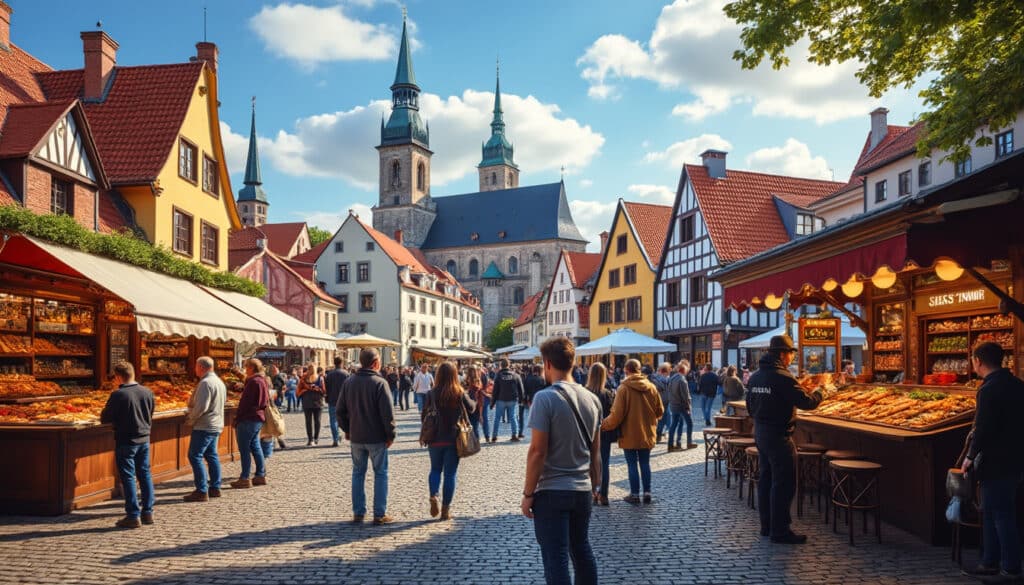
Fun Facts & Curiosities About Tallinn
The picturesque capital of Estonia, Tallinn, is a treasure trove of history, innovation, and delightful surprises. Whether you’re fascinated by medieval architecture or intrigued by modern technological advancements, Tallinn offers a blend of old-world charm and futuristic innovation. From its…
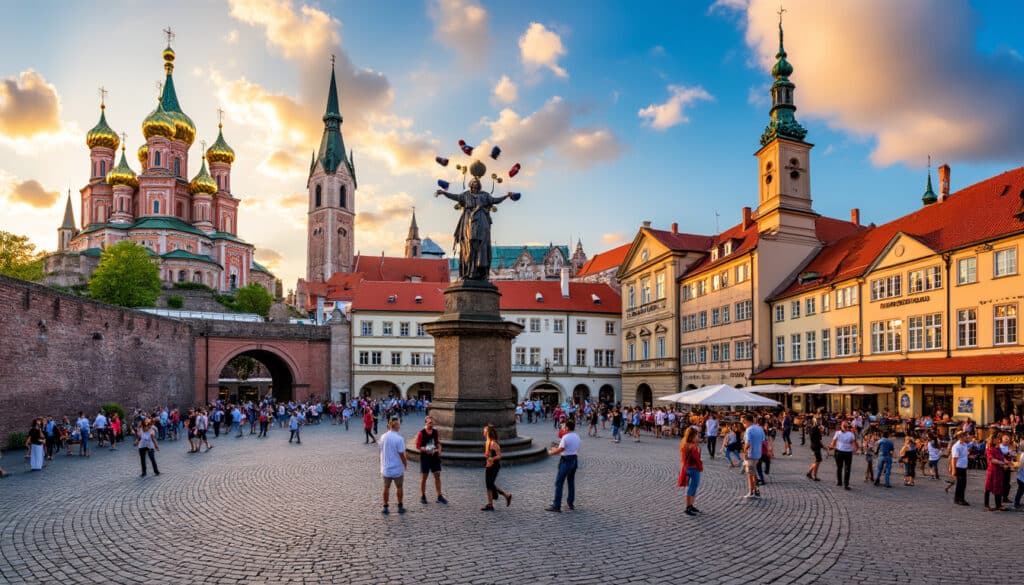
Architecture and urban features of Tallinn
As one wanders through the enchanting streets of Tallinn, Estonia’s capital, they are met with a city that is a tapestry of ancient and modern elements woven together through its architecture and urban features. Known for its well-preserved medieval Old…
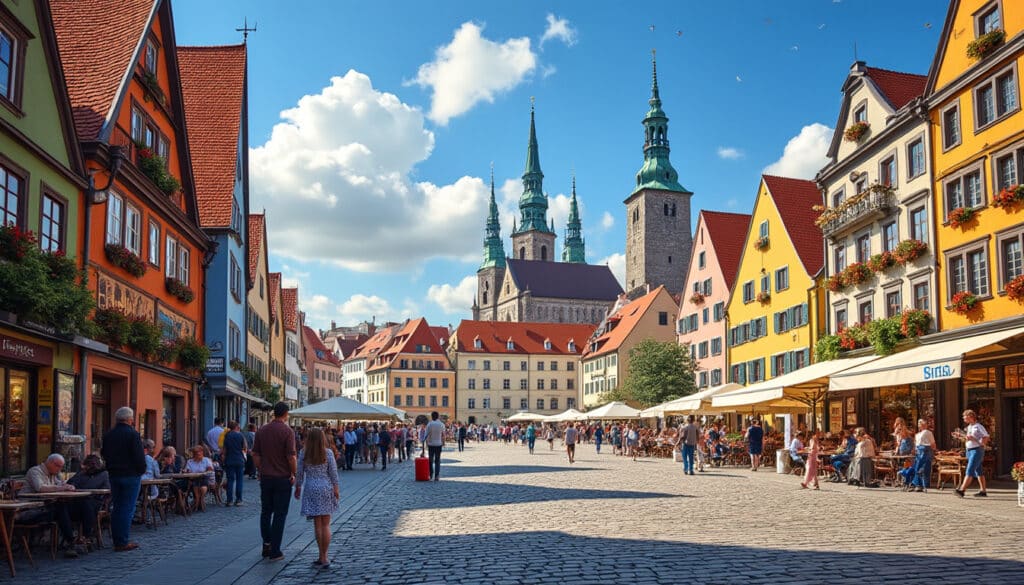
Welcome to the captivating city of Tallinn, where daily life intertwines with rich history, vibrant culture, and modern digital advancements. This Estonian capital, with its medieval Old Town and bustling contemporary neighborhoods, offers a unique blend of experiences for both…
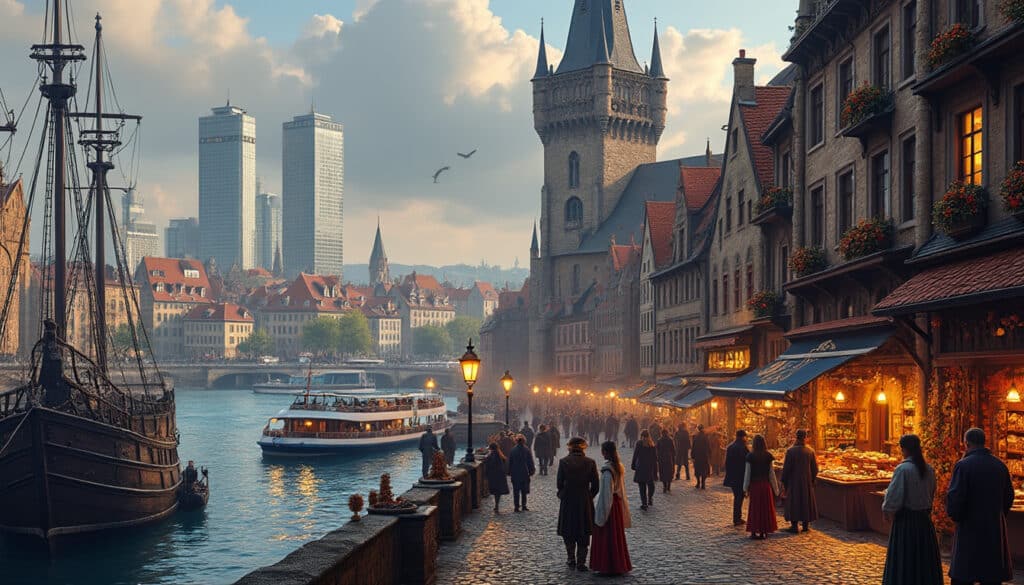
Enveloped in a rich tapestry of history and culture, Tallinn stands as a glittering jewel of Northern Europe. As one of the most captivating cities on the shores of the Baltic Sea, its medieval charm coupled with modern vibrancy provides…
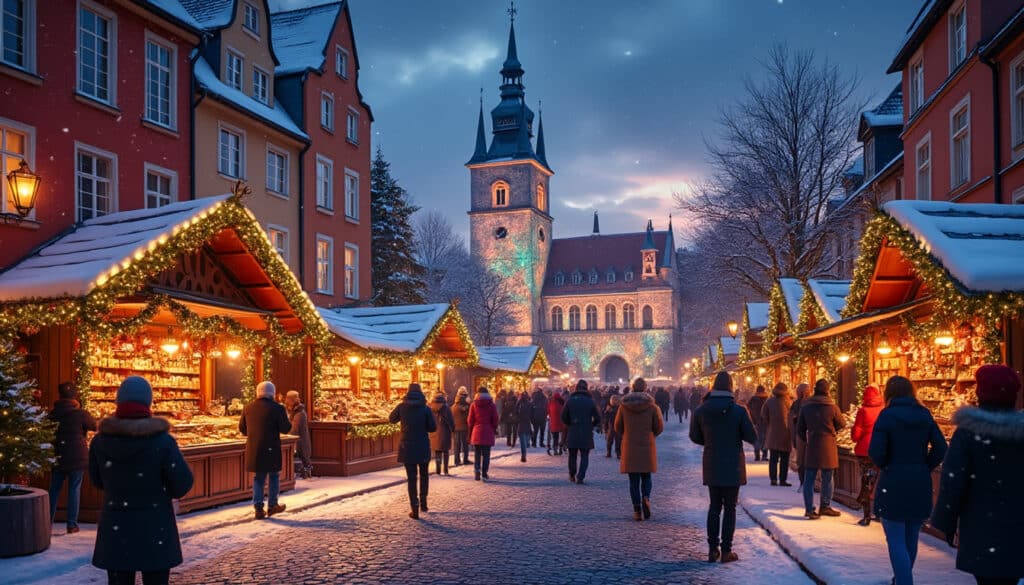
Holidays and celebrations in Tallinn
Explore the enchanting city of Tallinn, Estonia, where history and modernity blend seamlessly to offer myriad holidays and celebrations. From the vibrant Tallinn Christmas Market to significant national holidays, the capital of Estonia opens its heart to both locals and…
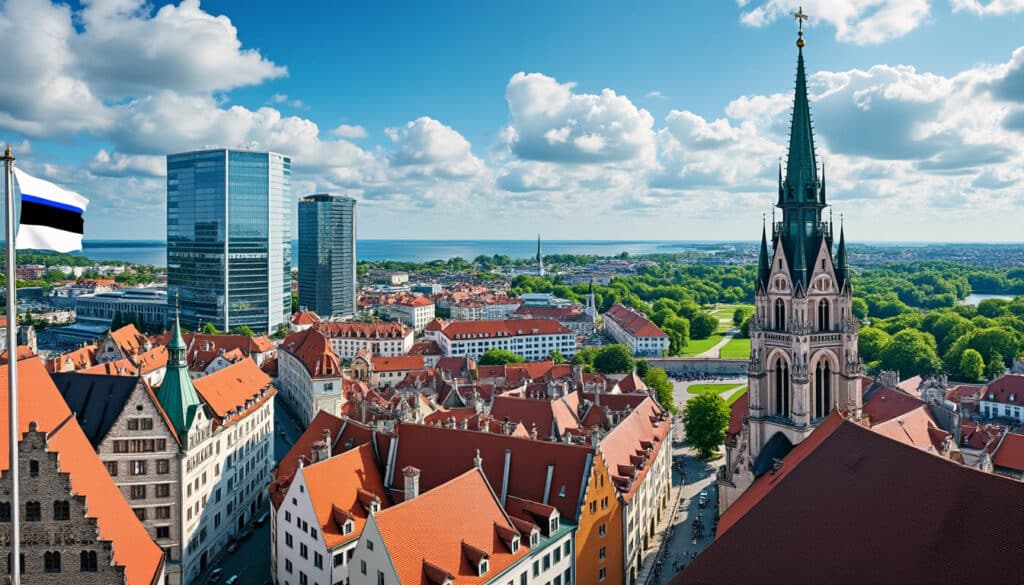
Language and spelling of Tallinn
Tallinn, the capital city of Estonia, is not only a hub of architectural beauty and cultural richness but also an intriguing subject when it comes to its language and spelling. Nestled on the northern coast of the country, this city…
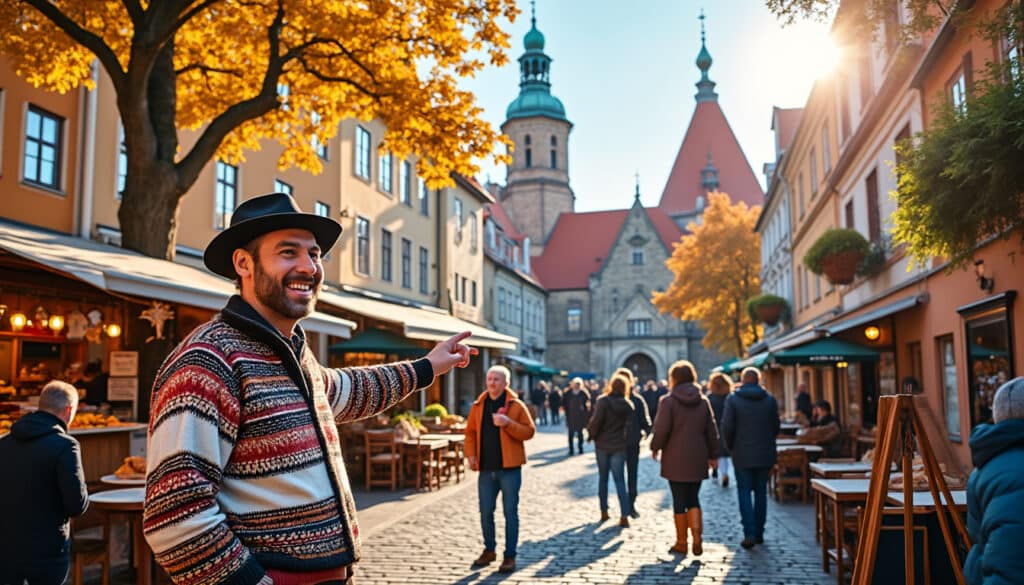
Local tips for tourists in Tallinn
Planning a trip to Tallinn, Estonia’s charming capital, might seem daunting given its rich offerings and relatively small size. Tallinn is a delightful blend of medieval architecture, modern innovation, and cultural enchantment. With a friendly population and rich history, this…
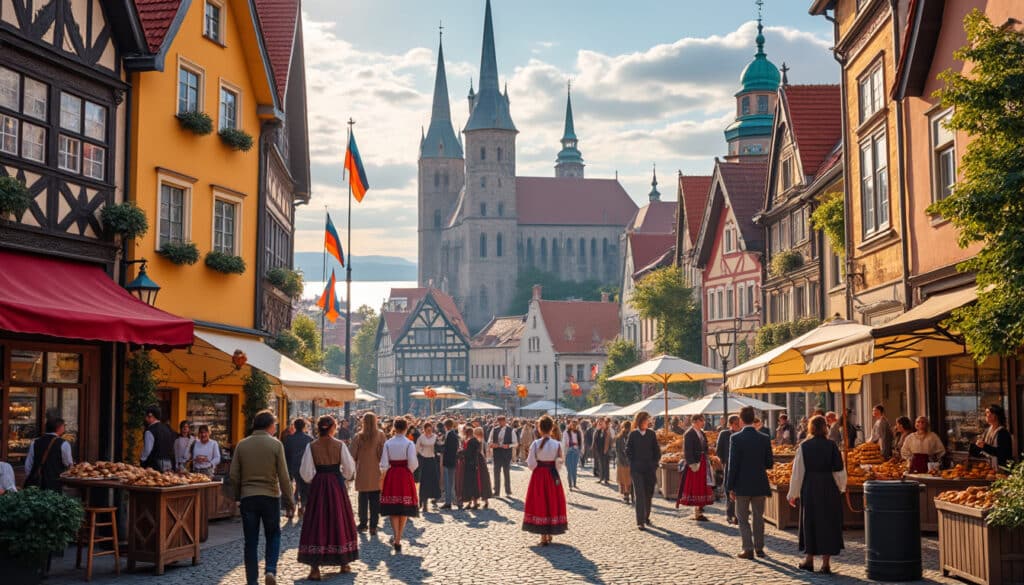
Names, flags, and identity of Tallinn
With its captivating blend of historical depth and modern dynamism, Tallinn, the capital city of Estonia, stands as a significant European hub. It’s a place where the past and present seamlessly coexist, showcased vividly through its many names and emblems.…
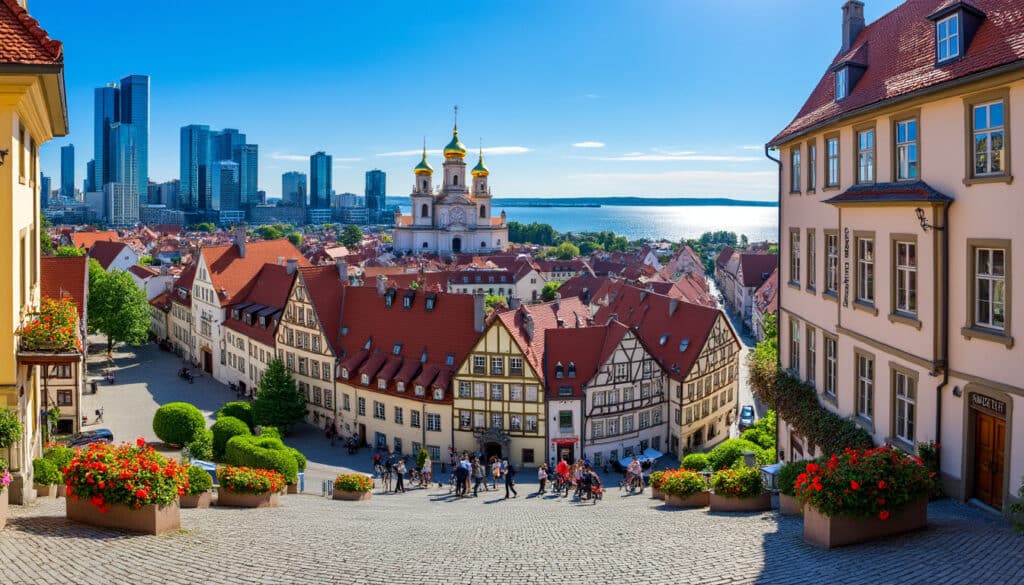
Reputation and identity of Tallinn
Tallinn, the capital city of Estonia, is a vibrant blend of medieval charm and digital innovation that captivates travelers from around the globe. Nestled on the northern coast of the Baltic Sea, this picturesque city has become a beacon of…
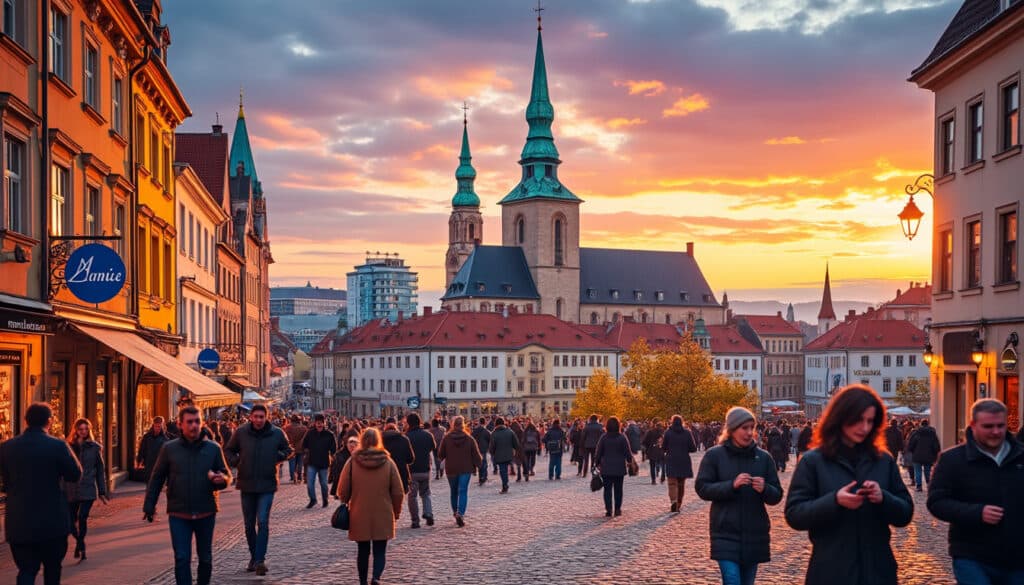
Located at the northeastern edge of the Baltic Sea, Tallinn, the capital of Estonia, is a city where time embraces both tradition and modernity. Known for its charming medieval old town and vibrant cultural scene, Tallinn is a city steeped…
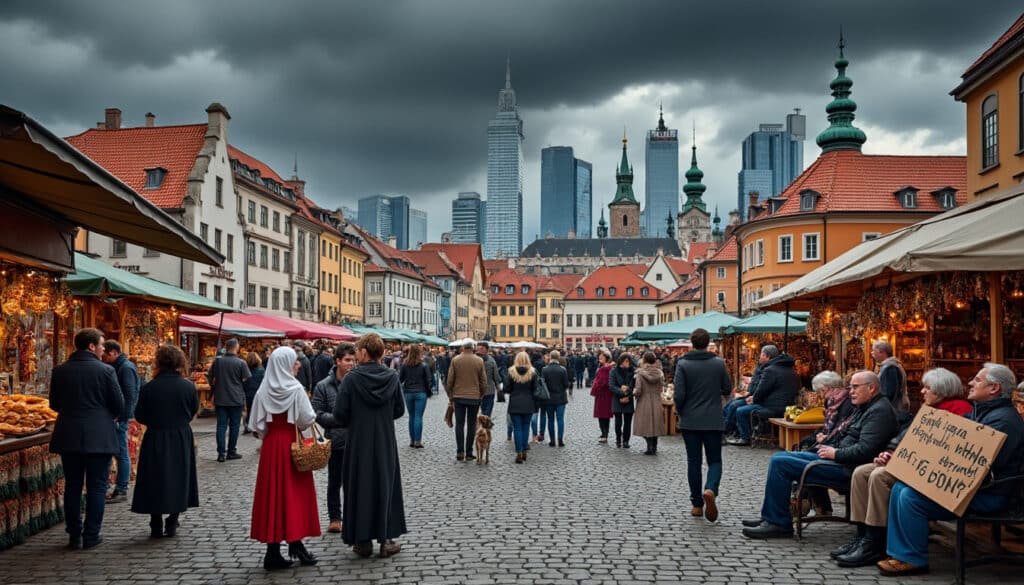
Unusual facts and social issues in Tallinn
The capital city of Estonia, Tallinn, offers a unique blend of medieval charm and futuristic innovation, making it a fascinating destination for both tourists and residents alike. Hidden within its cobblestone streets and modern advancements lie intriguing secrets and social…
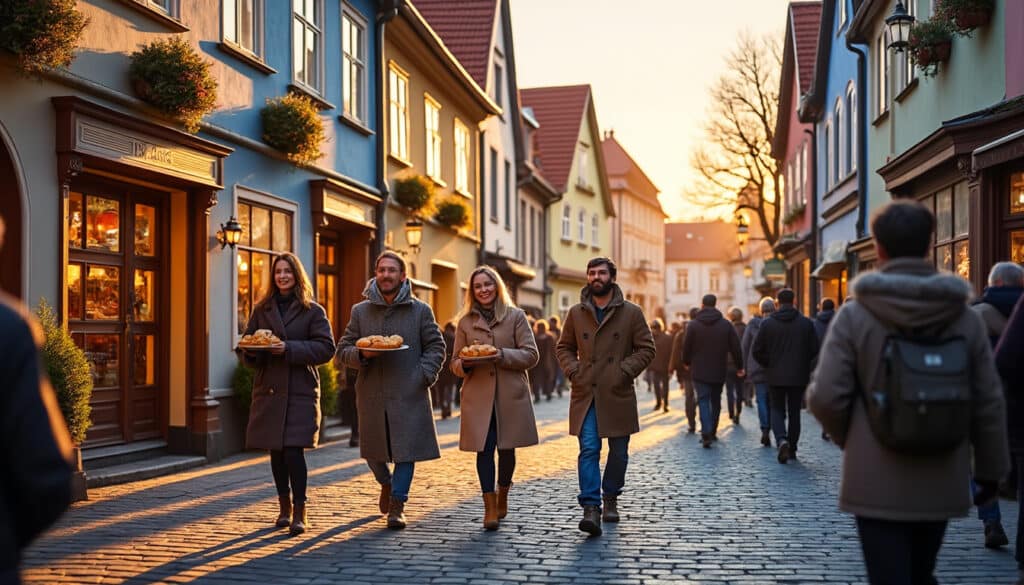
What does Tallinn look, smell, feel like?
Nestled in the northeastern part of Europe, Tallinn, the capital of Estonia, is a city that effortlessly marries the charm of its medieval past with the vibrancy of its present-day innovations. Visitors often speak of its cobblestone streets that wind…

